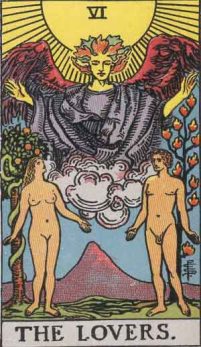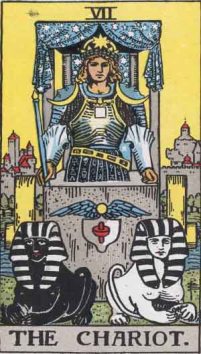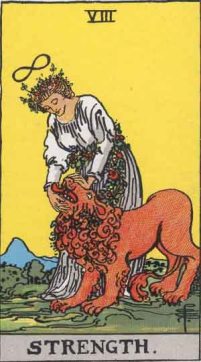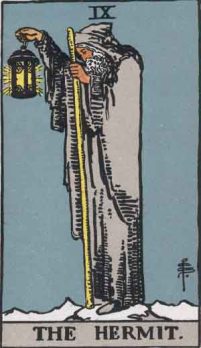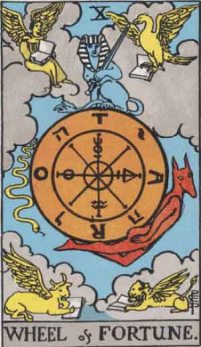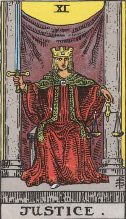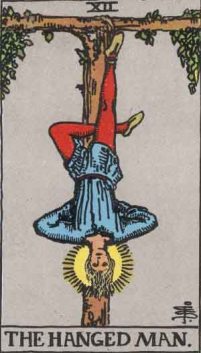(Revised, October 28, 2008) Also on this website:
Lecture 1 Lecture 3 Lecture 4 Lecture 5 Lecture 6
As a warm-up, let me note how I became
interested in this topic. Around twenty-five years I attended a women’s
“croning” ceremony. Look up croning on google, lots more information.
See book on becoming un-pregnant with your own soul. Crone is a
word I think of celtic origin referring not to withered, wicked witch,
but rather postmenopausal wise-woman. It occurred to me a bit
later that men as well as women might benefit from considering what
would that trajectory or curriculum of wisdom be? Might there be
beginning, intermediate, and advanced levels just as there are in so
many other human skill activities?
The Harry Potter books offer a hint at the idea of alternative
education, what one would learn if the curriculum involved becoming
adept at magic. I also wondered what his college curriculum might
entail. I thought of books like, “Harry Potter and the Curriculum
Advisor.” What is the curriculum then for graduate school
or continuing education? Even with magic there is another kind of
learning that Rowling doesn’t talk about: How to become more conscious
and compassionate. How to be good rather than evil. Not so easy today,
when there is an incredible amount of ambiguity about ethics, what is
cheating, is racism wicked or just a preference. My friend told me he
heard someone who lives here say, “I’m not going to vote for Obama
because he’s black.” Political preferences are allowed, but what
fascinates me is that this flagrant racism was not even a source of
shame for him.
Anyway, what if deep maturity isn’t something you attain, like a
degree, meaning you have it and you don’t ever need to do anything else
about it—in the sense of it being a status, a medal, not an ongoing
process. But really, deep maturity is like what I call wisdom-ing— it
is something that you do. If you stop doing it, then at that point
you’re being, well, less than mature. Hey, I don’t stay mature, I
lapse, and one way I am mature, is that I expect it, I even allow it
for some things, like being silly. But at other times, I watch for it
and resist the lapsing. It’s like slouching. If I catch myself I sit up
straight.
The point is to break out of the idea that one can “get” an education—a
very mid-20th century illusion, with the emphasis on education being a
possession that one can obtain—and then one “is” educated, implying
educated enough. Instead, we need to recognize the need to continue to
educate oneself as a life role, like the need to stay in relationships,
or eat. This recognition hadn’t been prevalent when I was young.
And the education is not just book learning, or skill learning in the
sense of a new sport, but the deeper soul skills of opening to ethics,
intuition, compassion, critical and practical thinking, stuff
that—well, you’ve found yourself learning a lot about these dimensions
in the last ten years, and you may well continue to learn a lot more in
the next decade of your life!
Now I haven’t yet worked out a tight curriculum or even criteria for
what would suggest an intermediate level of deep maturity, and what
would account for an advanced player. Advanced players still win and
lose, develop and practice their skills, make mistakes. They take on
harder challenges, too, so it’s not just the status one should aspire
to, but rather to enjoy the game, the journey.
In an associated website titled
"merit badges,"
I've posted some criteria for advancement. This is a very clumsy
groping toward an answer to what that curriculum might be. Your input
is needed. What I wrote was a casual, perhaps ill-thought-out effort to
imagine the kinds of things that should be included. My efforts
are meant to evoke your thinking and imagination, not to presume to be
authoritative in knowing what you need and how to weigh it. The point
is, though, that we do all weigh our various tasks, at least
unconsciously; so trying to make these conscious allows me to then
consider where I might need to adjust this or that item, add some, take
out others.
So, regarding deep maturity: Here’s some good news: Just taking this class makes you eligible for (at least!)
beginner status! You have commenced the journey! You are welcome to design your own certificate and
think about what an appropriate ceremony or ritual would be for you as
you begin on your hero’s journey. Some of you, as you review the number
of merit badge equivalents you’ve picked up along the way—and that
might be fun, too, wondering what these might consist of and how one
might earn them for deep maturity soul skills— you might qualify for
intermediate level.
I suspect folks can’t get full intermediate level qualification until
you’ve cleaned up all major addictions, for example. It might be fun
playing with what others think.
It seems to me that advanced deep maturity players know they are; they
are empowered. This isn’t arrogance. Indeed, another criterion is a
relatively realistic degree of humility—not too much to keep your
skills and light under a bushel—but not too little, either, so that you
feel you have the right to encourage, mentor, suggest, draw forth
others on the path—and even a bit for those not yet on the path.
Before I go back to the Tarot Cards, I want to note another theme
picked up in a discussion this last week. I’m not yet sure which card
this principle is associated with. It has to do with recognizing your
temperament, your weaknesses, your individuality, when do you not want
to overload yourself, when is it wise to accept limits.
The point is that we were taught that you can do anything with
sufficient effort, and this was from a time in which individual
differences were hardly recognized. Our parenting and school system
didn’t officially have programs that dealt with, for example, reading
disability, specific differences in learning styles, or even different
kinds of intelligence and interest. Much of mid-life wisdom involves
growing self-acceptance, but that in turn requires discrimination
between those skills that I really need to work on, shape up a bit.
There are some of these, and anyone can do them, and I accept the moral
obligation to shape up. The problem is that there are some other skills
that I’m just never going to get well, and interestingly, most of them
I don’t particularly want to do, even though I’ve been taught that I
should as befits my class, my supposed intelligence, my gender (what’s
“masculine”), and so forth.
So turning away from some endeavors is not necessarily sloth or
cowardice, and we need to exercise discernment in figuring out which
way to go regarding a particular task or skill. In the olden days this
choice-making wasn’t needed: One tried at everything, indiscriminately,
or so it was suggested to be virtuous. Challenging cultural
assumptions is another part of deep maturity. And then refining your
provisional ideas.
Well, as I think about it, this may segue into the next several Tarot
cards. Remember, this is just a way to organize some general
principles, as symbolized by certain elements on these cards. I don’t
know how to interpret all of them.
By the way, someone asked me about the downward-pointing hand of the Magus:
It is an old esoteric gesture of how the
higher spirit is meant to be channeled onto and into the earth plane.
It’s also a symbol of concentration of imagination and will.
So, let’s continue to address some other principles of deep maturity,
principles that may be expressed or hinted at by certain of the Major
Arcana of the Tarot cards. As I say, I’m only using these as
symbols—but they are highly suggestive.
The Lovers
The principle here is, well, love. In the exoteric world, the ordinary
maturity world, one learns to love others, sacrifice for romantic, then
parental, then civic and community love. That’s all good. And what one
learns in doing so is that you can love your kids or your country and
not always agree with what they do. Loving doesn’t necessarily require
idealization. That’s just in the romantic songs—the you’re so
wonderful, you’re the top, etc.
Rather, the deeper kind of love you’ve learned involves bringing the
other forth, even if that love is not appreciated or reciprocated. You
want to help the other reach his or its potential.
In the esoteric work, you need to do the same for disowned parts of
yourself. Ordinary maturity confers a certain capacity to pretend
you’ve got it made, that you’re all together, but in fact almost
everyone in midlife has developed a goodly number of, shall we say,
minor neuroses, split-off parts that—and this is the point—these parts
need to be redeemed if one is to become optimally integrated!
Now the truth for most folks by time they’ve reached forty or fifty is
that they have coped with the many pulls and pushes in their lives by
developing splits in their personality—not the kind of split
personality that’s an obvious disorder—though for a few people it’s a
symptom of an extreme of the dynamic I will talk about—but rather about
the tendency for normal healthy people to try to be good by cutting off
the parts of themselves that feel bad, or that they think are bad, or
that they fear will be bad. Makes sense. Except that it’s that childish
overshoot that doesn’t show discrimination.
You see, there are many parts of you that aren’t bad so much as just
not mature, and in the standard growing-up that most people went
through in the mid-20th century, this was not understood. Sexuality was
one of these, but also deeper feelings, emotional sensitivity, anger
and for some, aggression, especially against authorities. Let’s see,
independence was shut off for some, dependence for others, depending on
the family and its make-up. This is the baby and the bathwater problem,
because—and this the point—when we were younger we tended to glomp
parts of ourself together, the wiser and more foolish, the parts we
could help and parts we couldn’t help, the parts that were destructive
if played out childishly, and so forth. What we didn’t know and few
grown-ups knew either, is that many of these parts included very
valuable aspects that we needed to live our lives optimally. Mixed in
with childish dependency is the willingness to ask for and use help in
a mature way—baby and bathwater; mixed in with childish independence
I’ll do it myself (even if you can’t) is healthy independence. Some
folks don’t learn how to find their own resourcefulness until later in
life. You hear those stories of widows or widowers who are absolutely
bereft—not only personal grief, but the man who never learned to cook
or prepare meals for himself, the woman who never learned money
management—and you hear stories of how they healed. Not easy, not
painlessly, but sometimes stronger than before.
The lovers are the two parts of yourself. Get past the hating and
suppressing parts and instead re-owning them. A neurotic person can
have many such challenges, and normal healthy people usually have at
least five or six issues to work on and these can take years! Get that
it’s okay to have these issues. Expect them, look for them.
Love is very ambivalently treated because it’s associated with simple
lust, sexual excitation—and that’s nice, but—but the main thing is that
in love, of partners, of parent and child, even of true friend, the
goal is to bring the other forth into their fullest potential. And
there is part of you that needs someone to do that, and it doesn’t have
to be a therapist. It could be you learning that it’s you who can do
it, and how to redeem and cultivate those parts of yourself that have
been disowned.
Enough for that theme for the moment. The next card relates, though.
The Chariot
Who are the wild horses? Well, key part of this symbol is that there
are two of them. Notice that as you begin to look, you’ll find some of
your issues involves a pull between two strong emotions. You want to go
crazy hitting and you want to just collapse in a heap. At least I do. I
want to stay and give in, I want to leave in a huff, quit, take my ball
and go home. The alternative—this is the key—of keeping those two urges
in balance, harnessed so one doesn’t get ahead of the other, breaking
and harnessing and riding those horses—by the way, I’ve never driven a
two horse buggy with spirited horses, but I understand it requires some
skill!— translating that into human: Well, okay, say I’m frustrated. I
want to cuss, I want to cut out. There’s another more mature
alternative that my inner child doesn’t know about and couldn’t do if
it did; but I can do it: It’s called diplomacy, tact, negotiation,
working with the situation.
There are old people in our community who still fuss like frustrated
teenagers when they hit an obstacle, and others who hang in there and
keep their cool—and warmth—work with the bureaucrat, who often will try
to help if you’re nice about it—and the point I’m making is that this
skill needs and can be refined for another forty years after getting to
marginally competent.
Look for these conflict, think of this image of trying to ride two
spirited horses that want both to go forward but also are tempted to go
off away from the midline, so they need the reins.
Strength
The lady is holding the lion’s mouth. Anyone who’s ever gone on a diet,
given up on any habit, stopped smoking or struggles with it, this
symbol of self-management. It’s not easy. A fair number of people
you’ve known go through a period of addiction. It might not just bee
alcohol or cigarettes, though that’s common. Less obvious are
addictions to television, shopping, news, any particular hobby or
interest that can move into the “this is getting ridiculous” phase;
food, going into debt, gambling, enabling an addict, and so forth. In
the area of sex addiction, there are sub-types of pornography,
masturbation and sexual conquest. We’re not talking about mere
activity, but when it edges into feeling a little out of control,
compulsive, and the like.
The symbol deals with self-discipline. Getting out of bed even when you
don’t feel like it. My mother-in-law at 92 struggles with this. Old age
is not for sissies, she says. Keeping up your activities, exercise,
posture, positive attitude. There’s a place for will in the world.
The Hermit
This is an important principle. You got to walk that lonesome valley.
Now truth be told, you can ask others to walk it with you in many
situations, most of them. You don’t have to be alone, as the song from
Sound of Music suggests---
You’ll Never Walk Alone. But no one
can walk it for you, either. There are certain roles, challenges,
tasks, that are between you and you. So it’s good to love yourself
instead of hate yourself—back to the lovers. And to watch for those
situations and give yourself that space, that time. Set yourself up so
that even with an optimal amount of solitude or work, you give yourself
breaks and socialization according to your needs—extroverts need more
than introverst, and so each person not only needs to find his or her
own balance, but neither style is necessarily wrong.
Again, there are lots of folks who overdo it, try too hard, and don’t
allow themselves the gift of consultation, consolation, role relief;
and lots of folks who just can’t break away from the social
busy-ness—or won’t.
The Wheel of Fortune
Death, financial reversals, and too many friends with unexpected
tragedies in family members or illnesses. Stuff happens. Resilience is
one principle here, and it’s a quality that comes from within. You
can’t control life, but you can learn to respond to it better.
The other thing about control and fortune. Normal maturity involves
learning how to take charge of your life. Deep maturity involves
learning how to deal with the fact that even when you are in charge,
you are exerting all possible skill, you’re still out of control.
Consider being the captain of your soul, as the poem Invictus suggests:
A ship’s captain. A fair sized ship, with a crew of thirty or three
hundred. On the sea. The sometimes unpredictable sea and air and
weather. Now you get it, because your skill may at best optimize your
chances, compared to how a non-skilful captain might do it, but you are
so out of control in the big picture.
Justice
This card deals with good judgment, especially related to decisions,
the pros and cons of situations. I use the criterion of how I’d feel if
my son or daughter made a decision using good judgment, but it turned
out bad. Here are the criteria:
1. Did you run into it or run away from it, let yourself
be rushed or foolishly avoided it. We have that question right now
about 700 billion dollars. Are they rushing in screaming Wolf wolf like
the post-911 invasion of iraq?
2. Did you review the pros and cons. Some folks seem to be
doing that, really dispassionately asking about trade-offs, recognizing
that politics and many decisions are sometimes choices between the bad
and the dreadful.
3. Did you ask anyone not involved, someone who could be a
neutral player, who doesn’t have to cater to your wishes, what they
thought. It helps if they know about the subject at hand, but not
required.
4. Is it basically ethical?
Now here’s the catch: If my son or daughter was faced with a situation
and did follow these 4 criteria, I would be proud of them. Lots of
people make their decisions missing one or more of these elements—and I
can commiserate, but I can’t say that I’m proud, because these are
basic principles of maturity. A person can follow these rules and it
still can turn out to be a bad investment, the job may turn out badly,
the house has something the inspector didn’t pick up, etc. We all can
make mistakes that no way can be anticipated. But if the 4 criteria are
used, well, I don’t know if any wiser person would have known any other
advice or guidelines that I could hear.
The Hanged Man
This is one of the most provocative and richly symbolic card. As I
note, there may be as many as a thousand or more interpretations. So
one point of deep maturity is that these symbols are
an invitation, a confirmation, of your right to interpret, to read into
things your own thoughts, and by so doing, better discover what your
own thoughts are. Don’t accept your associations, play with them. Nor
should you analyze them away as being “just” or “only” this or that
derivative of some psychological complex. Rather, let images and
symbols suggest that whatever your first interpretation is, you may
learn from that, perhaps deepen, refine, or contradict it!
The symbol of the hanged man for many including me is fairly simple yet
profoundly subversive. Sometimes you may seem to others to be a fool.
What are you doing hanging by one foot, almost crucified, and yet
you’re radiant. Are you happy? How can that be true? The hanged man
represents the holy fool again in a different guise. Buddha was one
such, and in other ways, the Christ as clown figure in the 1970s
Broadway Musical Godspell was another. Can poor people be happy? Can
there be richness in simplicity? The world of ordinary maturity tends
to be materialistic, it tends to be normal, buys into the social norms
of a profoundly immature stage in human evolution.
The hanged man hints that wisdom often involves seeming paradox, and
what may seem to be bad or crazy or weird to some people may be holy
and sublime from inside. Put it another way: An old saying says that if
a pickpocket were to sneak in to a conference of saints, he would only
see their pockets. Or as Dostoyevsky wrote about in a story within a
story, in the novel The Brothers Karamazov, one of the brothers tells a
story called “the Grand Inquisitor,” about Jesus returning to earth
during the Spanish Inquisition. He’s thrown in Jail and the main part
of the story has a monologue by the Grand Inquisitor as he speaks to
Jesus.
The card is aimed at inviting you to open your mind to the possibility
that as you grow wiser you will encounter a number of seeming
paradoxes, lessons that may be the opposite of what you learned when
you were growing up, or the opposite of what still today is considered
common sense or what most folks believe about the world and what it’s
about, what you need to do to make it, who you are, what your meaning
or purpose is about.
Actually, of course, you’ve encountered some of these contrary
messages, but sometimes it takes a bit of living to bring their
messages home to you.
Well, that’s enough for this talk. Let’s explore some further questions.
1. I took seriously the question last week, are there any civilizations
that have achieved a truly higher level of consciousness? In some
old myths, some of you heard of a place called Atlantis, that stories
make out to be elevated somehow— but these stories are not much more
than myth.
Here’s another advanced
civilization: America in 2000, according to the dreams of the science
fiction writers around mid 20th century. Technology will have solved so
many problems— it will be plush! But Wall-E movie showed both a
dystopia and utopia combined, and other fiction writers imagine a more
unpleasant future. The point is that no one has really thought out or
spelled out much less manifested even a local utopian community—one
that actually lasted and where there were hardly any downsides--- much
less a nation.
So if any of you have better ideas, please let me know. I don’t doubt
that there have been societies in which perhaps one or even several
features might seem attractive, but often those features depended on
tyranny, slavery, rigidity of acceptable beliefs, exploitation of
foreigners, war, and applied only to certain sub-groups. The brief
periods of “golden ages” for certain arts or music, philosophy or
science, tended to apply, as I say, to fairly protected classes of
people.
